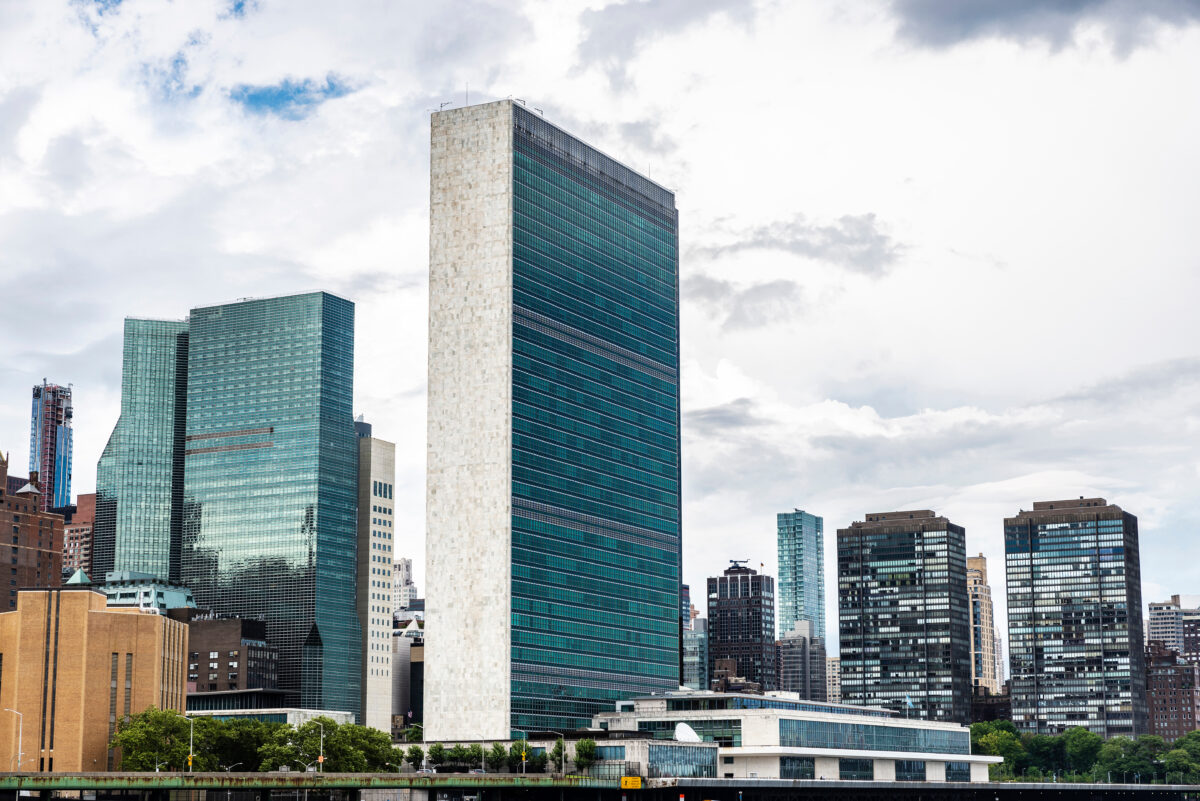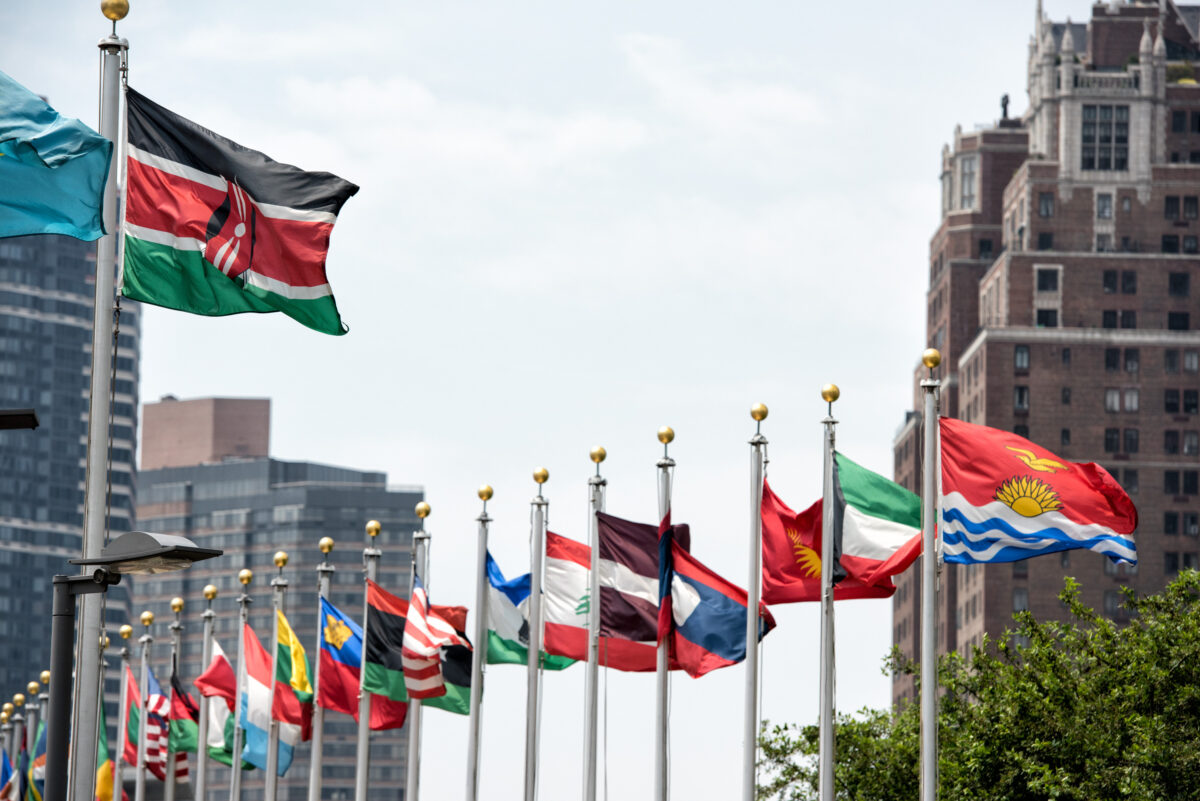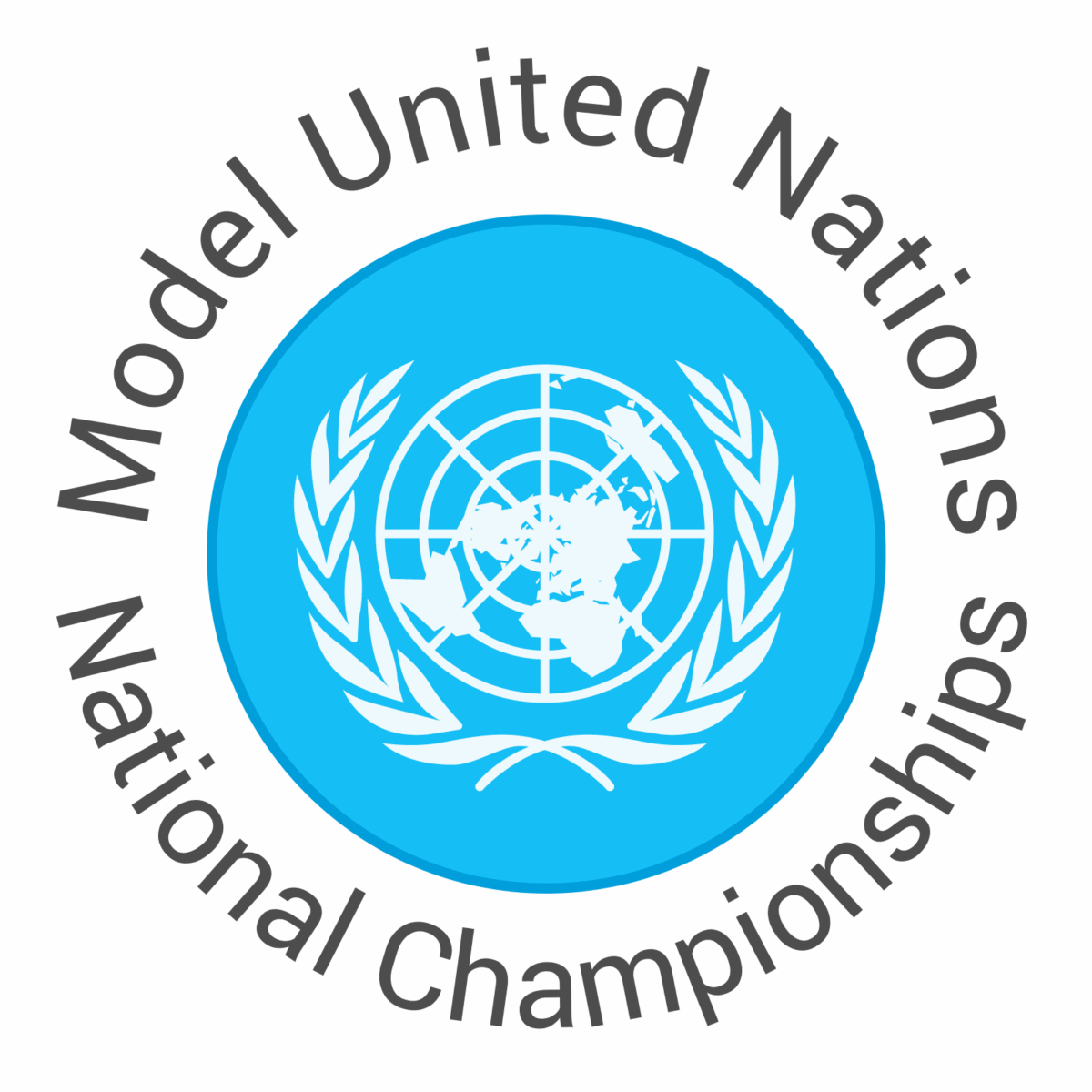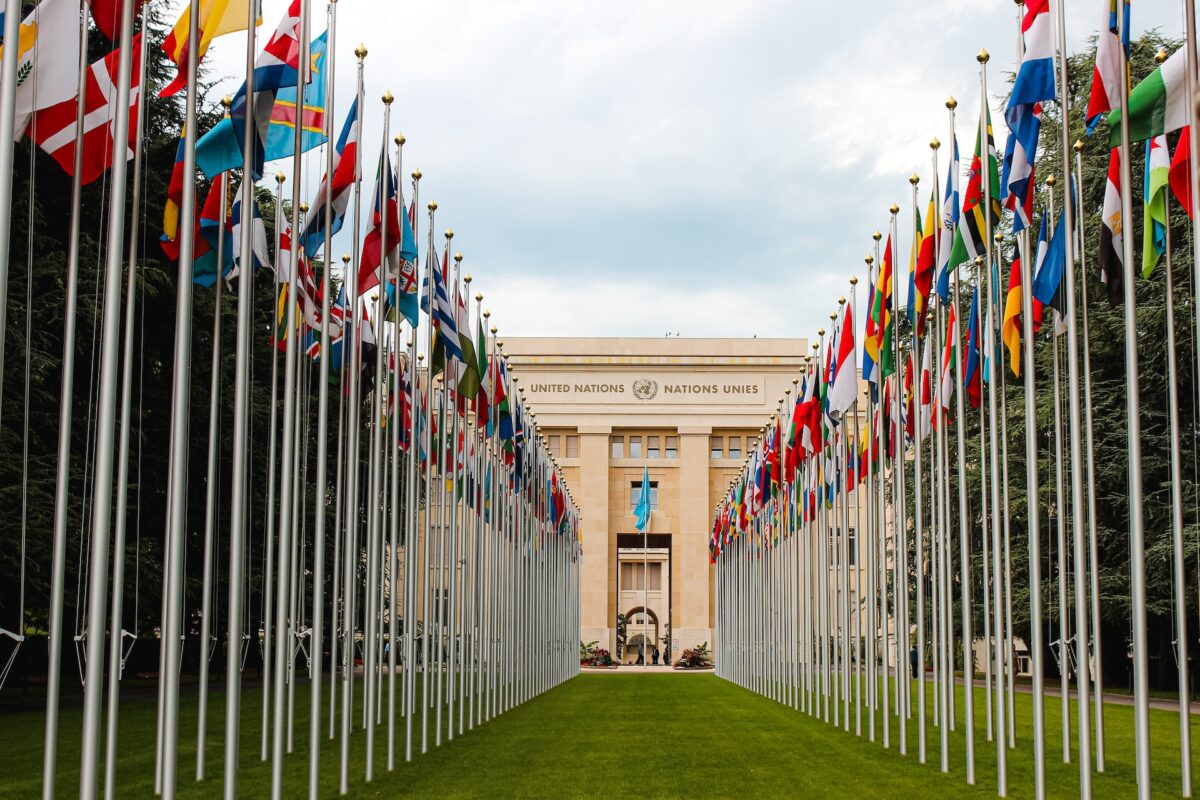Model United Nations
National Championships
Middle & Elementary School Divisions Homepage
New for the 2025-2026 Academic Year!


Model UN Nationals Middle & Elementary School Divisions Overview

In May 2026, for the first time ever, Model United Nations will have a designated National Championship conference for middle & elementary school students in the USA! This will take place on Friday-Monday, May 22-25 at the International Academic Competitions Middle & Elementary School National Championships at the Hyatt Regency Orlando in Orlando, FL. Please explore this page to learn more about how we are structuring this event, and how you / your student(s) / your child(ren) can qualify and take part in it.
Jump To:

Competition Format
The Model United Nations National Championships consists of preliminary committees and playoff committees. Please note that the Introduction to Model UN committees are not considered part of the Model UN National Championships, but students who participate in those and win awards in them qualify for the Model UN preliminary committees offered on Sunday.
1
Preliminary Committees
All students who compete at the 2026 Model UN National Championships begin by participating in the preliminary committees. There will be 6 preliminary committees at the Model UN National Championships. Each is open to any student who has qualified to compete at the National Championships. Each committee costs $99 per student regardless of the duration of the committee or whether students are competing as solo students or in pairs. A full schedule of the 2026 IAC National Championships, including all Model UN committees can be found here.
| Committee | Type | Topic Announced | 8th Grade | 7th Grade | 6th Grade | 5th & 4th |
|---|---|---|---|---|---|---|
| UN Environment Programme | Standard | Nov. 2025 | May 22, 8:15am-12:00pm | May 23, 1:00-4:45pm | May 23, 8:15am-12:00pm | May 22, 1:00-4:45pm |
| Security Council | Crisis | Nov. 2025 | May 22, 1:00-4:45pm | May 22, 8:15am-12:00pm | May 23, 1:00-4:45pm | May 23, 8:15am-12:00pm |
| African Union | Crisis | Nov. 2025 | May 23, 8:15am-12:00pm | May 22, 1:00-4:45pm | May 22, 8:15am-12:00pm | May 23, 1:00-4:45pm |
| UNESCO | Standard | Nov. 2025 | May 23, 1:00-4:45pm | May 23, 8:15am-12:00pm | May 22, 1:00-4:45pm | May 22, 8:15am-12:00pm |
| Surprise Committee | Standard | 4:15pm, May 23 | May 24, 11:00am-1:45pm | May 24, 11:00am-1:45pm | May 24, 11:00am-1:45pm | May 24, 11:00am-1:45pm |
| Surprise Committee | Crisis | 4:15pm, May 23 | May 24, 2:30pm-5:15pm | May 24, 2:30pm-5:15pm | May 24, 2:30pm-5:15pm | May 24, 2:30pm-5:15pm |
Once the topics are announced (by January 2026 for the first four committees), background guides will be available to help students prepare. For the four committees on May 22 and 23, students will receive their country assignments the day after registration closes for the National Championships (i.e. on May 5, 2026) so that students who register earlier are not at an advantage. For the Surprise Committees, registration will run through 6:30pm on May 23, and country assignments will then be assigned at 7:30pm with background guides and the topics then also being available at that time.
None of the committees have any field cap for any age division, but if over 30-40 countries (at IAC’s discretion) are going to be represented within a committee within an age division, we will open a second (or potentially third or fourth) committee room for that committee within that division. Students will need to use parliamentary procedure during committee sessions; guidelines for how this will specifically be implemented will be posted to this website in the coming months.
2
Playoff Committees
Approximately the top 1/3 of countries in each preliminary committee will receive awards. Any student or pair who receives an award is then eligible to compete in the playoffs and can then register for the playoffs. Participants must register for the playoffs at the National Championships (since they are held at the same time as certain other events, and we need to know if students plan on participating in Model UN or the other events), which they can do so at any point from noon on Friday, May 22 (i.e. the end of the first preliminary committee, at which point its award winners will be announced) until 6:30pm on Sunday, May 24. Country assignments for the semifinals will then be announced at 7:30pm that same evening. It does not cost anything extra to compete in the playoffs. If students competed as a solo or pair in the preliminaries, they must compete in that same configuration through the duration of the playoffs. Leaving the playoffs early results in disqualification for award consideration (including if only one of two students leaves); thus please make travel plans accordingly.
Each delegation will be assigned to a semifinal committee. The semifinal committee will be a standard committee, though the final round will then be a crisis committee. If there are 35 or fewer countries participating in the playoffs within an age division, then only one room will be held. To the extent possible, we will endeavor to keep multiple rooms within an age division as evenly matched as we can (e.g. if there are two semifinal rooms and there are four separate delegations that won Best Delegate awards across the preliminary committees, then two of these will be in one semifinal room, and the other two in the other semifinal room).
How Final Ranks Will Be Determined if there are 16 or Fewer Delegations in the Playoffs
In the event that there are 16 or fewer delegations in the playoffs for a given age division, then all delegations would automatically compete in BOTH the semifinals and finals (i.e. there would not be a contraction of the field size after the semifinals; effectively in this case the semifinals would be the first part of the finals, and the finals would be the second part). In this case, the delegations would be ranked across their performance in both parts of the finals, with ranks 1-5 being recognized by awards at the end of the second part of the finals (i.e. the afternoon crisis committee).
How Final Ranks Will Be Determined if there are 17-35 Delegations in the Playoffs
In the event that there are 17-35 delegations in the playoffs for an age division, then all delegations in an age division will compete in the same semifinal room. However, in this case, only the top delegations would advance to the final committee. Please see the table below for how many delegations would advance to the finals given the number of competing semifinal delegations. The point values on the right side of the table correspond to the number of Playoff Points the top delegations (in descending order) would receive based on their semifinal performance. Thus, if there are 18 semifinal delegations, then the top 8 delegations advance into the Finals. The 4th best semifinal delegation receives 50 Playoff Points, and the 5th best semifinal delegation receives 40 Playoff Points, etc.
| # of Delegations in the Semifinals | Points for best finishes |
|---|---|
| 17-22 | 100, 80, 60, 50, 40, 30, 20, 10 |
| 23-28 | 100, 80, 60, 50, 40, 30, 20, 15, 10, 5 |
| 29-35 | 100, 80, 60, 50, 40, 35, 30, 25, 20, 15, 10, 5 |
Delegations advancing into the finals will not be told at the end of the semifinal round how many points they amassed in the semifinals, so as to avoid unduly influencing the outcome of the finals.
In the finals, all competing delegations are ranked using the same point totals. Then, to determine the final outcome, the Playoff Points from BOTH the semifinals AND the finals are added. In the event of ties, the finals score is dispositive (as each delegation had more time to influence the outcome in the finals as there were fewer delegations competing). The top 50% of delegations will then receive specific placement awards; other delegations will receive finalist awards.
How Final Ranks Will Be Determined if there are 17-35 Delegations in the Playoffs
In the event that there are over 35 delegations in the playoffs, then two or more playoff rooms will be contested. The top delegations (the percentage will vary depending on enrollment numbers, but it will be the same number from each room) then advance to the finals. No further determination will be made as to how these students ranked among each other (again, to avoid influencing the outcome of the finals). In the finals, in this case, ONLY the final round placement will count toward determining the overall placements (since the delegations did not all compete against each other in the semifinals; thus determining relative semifinal performance among the finalist delegations is not possible). The top delegations in the finals will receive placement awards; all other final delegations will receive finalist awards.
Bonus
Stage
International Geography Championships

View to the Beach, JW Marriott Resort & Spa, Khao Lak, Thailand
Students who have qualified for the 2026 Model UN National Championships by winning an award at any Model UN conference in the 2023-24, 2024-25, or 2025-26 academic years above the Honorable Mention level also qualify for the 2026 International Geography Championships which will be held at the JW Marriott Resort & Spa on the beach in Khao Lak, Thailand from July 5-12, 2026! Students can also qualify by winning any award in any committee at the 2026 Model UN National Championships.
The International Geography Championships is a week-long event with numerous competitions (including Model UN committees), field trips, family activities, and more. In each event, medals are awarded to the top 3 competing students in each age division. US students compete for their state; students from other countries (or students in the USA who were born abroad or who have foreign citizenship) represent those countries. Two of the most prestigious events at IGC are the International Geography Bee World Championships and the International Geography Bowl World Championships. An overall IGC Championship title is also awarded in each age division; please view the website at www.geochampionships.com for further details on all events and to register. We hope that you will be able to join us at IGC 2026!
For all questions on the 2026 International Geography Championships, please email igc@iacompetitions.com.
